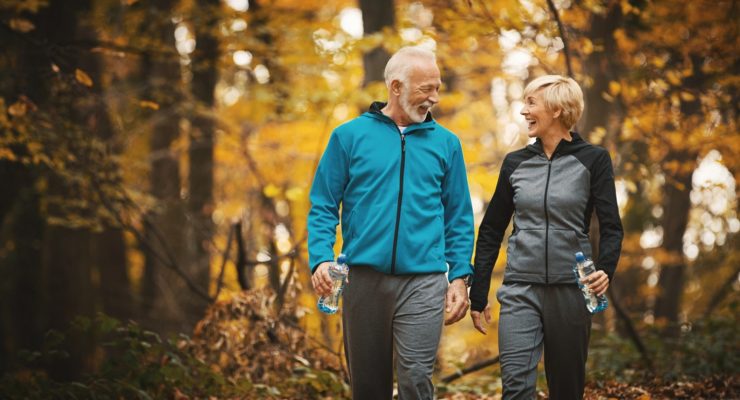
If someone you love asks you to do something for them, you fall all over yourself to help them out. After all, that’s what friends are for.
But if it’s someone you don’t like… everything changes. You hem and haw, procrastinate, and fall all over yourself to avoid doing what they want. Or maybe you just snub them entirely. What do you care? You didn’t like them anyway.
Imagine, for a moment, that first someone you love is you. Then, imagine the second one is you too. Could embracing yourself and your body just as you are be the difference between successful weight loss and failure to reach your goal?
Yes, it could. Studies have found that people with poor body image are more likely to become emotional eaters. One study published in 2012 in the International Journal of Obesity found that overweight or obese adolescent girls who were at least somewhat satisfied with their bodies were 65 percent less likely to binge eat frequently—and those who were the most satisfied had 85 percent lower odds of bingeing. Those with at least a decent body image were also less likely to gain weight.
Poor body image may also be an obstacle to exercising. Some studies have found that people who are ashamed of their bodies are less likely to put themselves into situations where they think others will judge them—like the gym. In one study at Marquette University in Milwaukee, almost all of the more than 1,000 students surveyed said they preferred exercising where they would “blend in” and not be “gawked at.”
Send an “I love you” message to your body by following these tips for building a better body image:
Stop talking trash to yourself. Psychologists call it “negative self-talk,” that scolding, shaming inner voice that tells you you’re fat, ugly and stupid or some combination thereof. It’s enough to make you want to eat an entire sleeve of cookies. You need to replace that voice with one that’s kinder and more compassionate. Adopting positive thinking and positive self-talk doesn’t mean pretending your muffin top or heavy thighs don’t exist. Instead, it means you’re going to appreciate all the things you are instead of honing in on only the aspects of yourself you don’t like. Focus on the parts of yourself that you’re proud of—your pretty eyes, your smarts, your success at work, your parenting skills. Remind yourself that you’ve undertaken a health journey that requires strength, persistence and stamina—and that you’ve got this.
Treat your body with respect. You’ve been given this one precious body—give it a little love. Every day, think of each meal and opportunity to be active as a gift that will nourish and protect this vessel that’s carrying you through life. When you’re feeling down on yourself (maybe you slipped up in the eating department), do something positive for your body, like taking a brisk walk, even if it’s for only 10 minutes. (Do that three times a day and, studies say, you can help lower your blood pressure, improve aerobic fitness and even control your weight.)
Take a look at real people. The media bombards us with images of impossibly thin people who, it’s implied, are the only ones who can be happy. The average female model is 5’11” and weighs 117 pounds, a body type that occurs naturally in less than five percent of the population or is achieved by an eating disorder. Making them your ideal is unrealistic. Chances are you know a lot of people with happy lives who don’t wear a size zero (far from it). Take a look around you. Those people are your reality check.
Keep a gratitude journal. Studies by Robert A. Emmons PhD, of the University of California at Davis, found that people who kept a journal listing five things they were grateful for during the week were more optimistic and felt happier than people who didn’t keep journals. Weight control bonus: They also worked out more and had fewer physical problems. It’s impossible to feel the negative emotions, from anxiety to self-loathing, when you’re focused on the positive.















